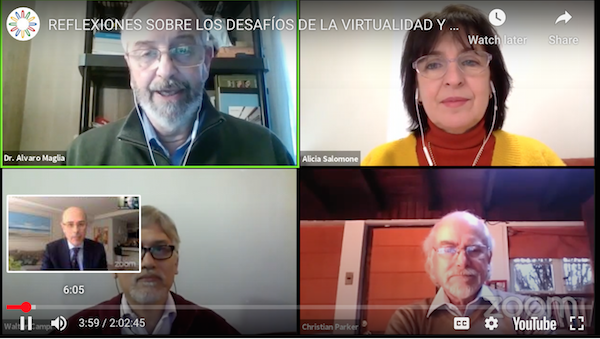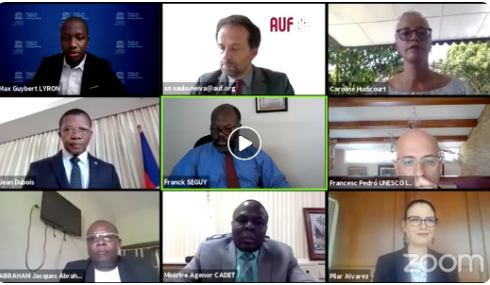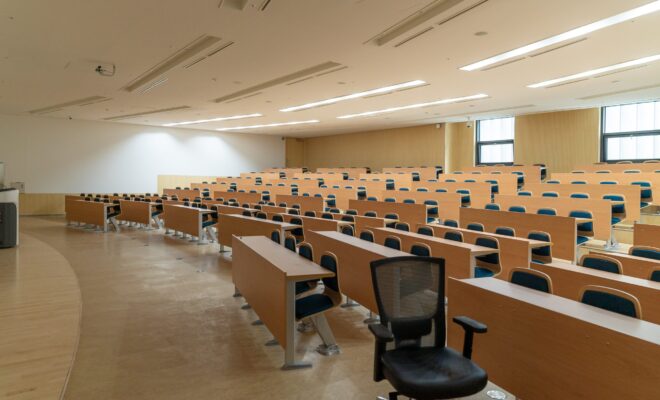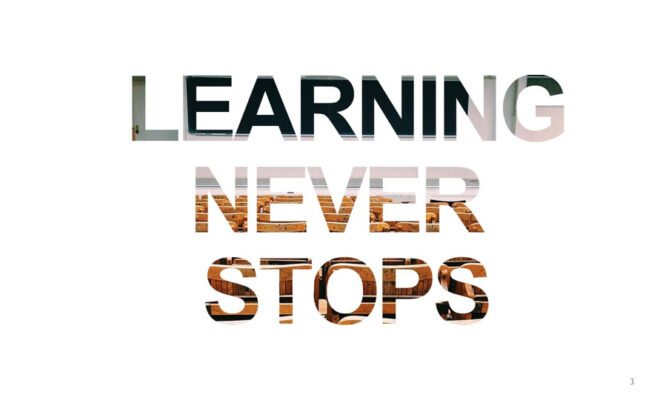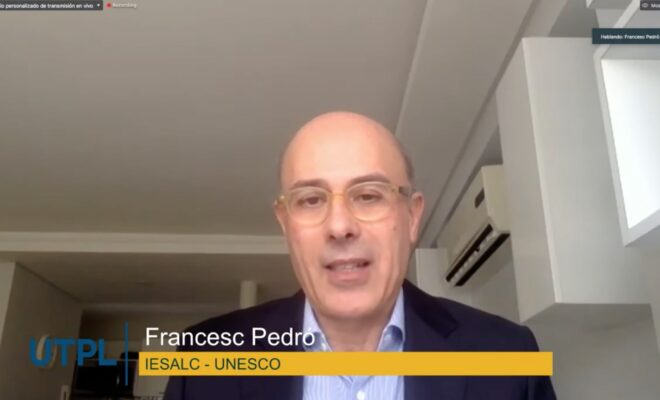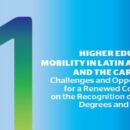The role of universities in post-pandemic economic recovery
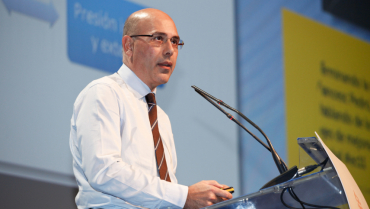
UNNE Medios / The UNESCO International Institute for Higher Education in Latin America and the Caribbean (UNESCO-IESALC) director, Francesc Pedró, agreed with and highlighted the speech of the Rector of the Universidad Nacional del Nordeste (National University of the Northeast) and president of the Consejo Interuniversitario Nacional CIN (National Interuniversity Council), Delfina Veiravé, in which she points out and anticipates the important role that universities may play in the next process of socio-economic recovery after the Coronavirus pandemic.
“We need to create together, and in this sense I want to praise the public speech offered by Rector Veiravé in her role as Rector of the UNNE, but also as president of the CIN, in defense of the role that universities can play in the economic recovery”, Pedró said in statements to Radio Unne 99.7.
“We do not know exactly when, but we will reopen the classrooms, and at that moment it is very important for us to be able to build that discourse to which I referred to earlier, and which Rector Veiravé also maintains, about the contribution of universities to that economic and social recovery”, he added in relation to what Veiravé expressed during the First Virtual Forum of Higher Education Rectors on COVID-19 organized by the CILAC Forum and the IESALC, which was held on Thursday, May 28.
During the interview when consulted on the global reality of the Covid 19 pandemic and its effects, the head of IESALC-UNESCO expanded on the subject and mentioned some of the main ways in which all universities can contribute. “We have to realize that a good part of the solutions in the field of research, for this pandemic and for others that may come in the future, can probably be found in the laboratories of the universities,” he said.
Secondly, he pointed out that “probably the keys to economic recovery are also largely in the ability of our universities to generate that human talent that ultimately also translates into entrepreneurship, in innovations that later produce wealth.”
And last but not least, he assured that “universities are also fabulous mechanisms of social mobility, which unfortunately we could be now losing.”
An economic recovery with social cohesion and innovation
Pedró then highlighted the speech that the rector of the UNNE gave in the aforementioned virtual meeting, in which her Argentine counterpart Hugo Juri, from the Universidad Nacional de Córdoba, (Argentina) was also present. The rectors Sandra Goulart de Almeida of the Universidade Federal de Minas Gerais (Brazil); Miriam Nicado of the Universidad de La Habana (Cuba); Gerónimo Laviosa, from the Universidad Nacional del Este (Paraguay), and Rodrigo Arim, from the Universidad de la República (Uruguay), also participated in this meeting.
“We need the support of the states to guarantee that the universities play in favor of an economic recovery with social cohesion and innovation”, the UNESCO referent also pointed out, and considered that “I don’t think that any other social institution can do it better than a university, than the region’s body of universities”.
Asked about innovation and how to understand it currently in this context, Pedró explained that “one can incorporate a lot of technology and continue within the parameters of the most traditional university education.”
“True innovation has nothing to do with what it is supported on, it has to do with trying to answer the question of how we can get students to learn more and better in the 21st century,” he said. And he assured that to answer this “there are a multiplicity of paths”, and in many of them “technology can be a catalyst or a lever”.
“But we would be fooled if we thought that the use of technology is synonymous to an innovative teaching and learning process,” he warned, and supported his statement in data they have at IESALC which show that “most of the uses that have been made of technology, during the pandemic, have actually been to reproduce extremely traditional forms of teaching and learning”.
“I do not criticize this because, surely, given the circumstances it could not be otherwise”, Pedró clarified. “I simply say that the use of technology does not have to be considered synonymous with innovation at all. It will be when certain uses of technology contribute to solve the problems we have; and the main ones are: to improve learning modes and make that learning experience much more satisfactory”, he said.
“In addition, there may be a whole path of innovation linked to seeing how we manage to make higher education a much more equitable and inclusive public asset, and there technology may also provide us with answers; but by itself, if we do not know how to formulate the correct question, technology will never give us an answer, it will simply simplify the problems that we already have, under the mirage of an alleged innovation”, he concluded bluntly.
Higher education dropout, one of the effects of the pandemic
Asked about the agenda for Latin America and the Caribbean, particularly in the framework of this global pandemic, the head of IESALC-UNESCO said that it is inevitable to notice that the most immediate effects and future impacts “are negative, sad and painful”. And “they are also differential, because unfortunately, the damage is greater the lower the socioeconomic and cultural extraction of the students. And therefore, the gaps that are going to be generated in this regard will be even greater”, he added.
In this context, he considered it necessary that in the short term “we do everything possible, on a system and institution level, to not leave any student behind.”
“Because unfortunately and despite all the efforts that are made to guarantee pedagogical continuity, the truth is that today we are losing students,” said Pedró. “And we are losing students who belong to the most vulnerable socioeconomic background, who are going to have problems even at an economic level, because their families are going through a very difficult time,” he added.
In this sense, it should be noted that the aforementioned data corresponds to the general context of universities in Latin America and the Caribbean, where there are differences in the university system. The Secretary for University Policies, Jaime Perczyk recalled, also in an interview with UNNE radio, that for example in Brazil 75% of young people go to private universities and in Chile 85%, “and Argentina’s situation is only comparable to Uruguay. In our country, 80 or 82 percent of the student population attends public universities”.
“Here the difficulties are going to be related to the socioeconomic situation that is going to be hard, and we are going to have to work with comprehensive policies,” said the head of the Secretariat for University Policies.
Interview with the IESALC director, Francesc Pedró, carried out on July 27, 2020 for the Ciudad Invisible (Invisible City) Program of the UNNE Radio.
RELATED ITEMS

